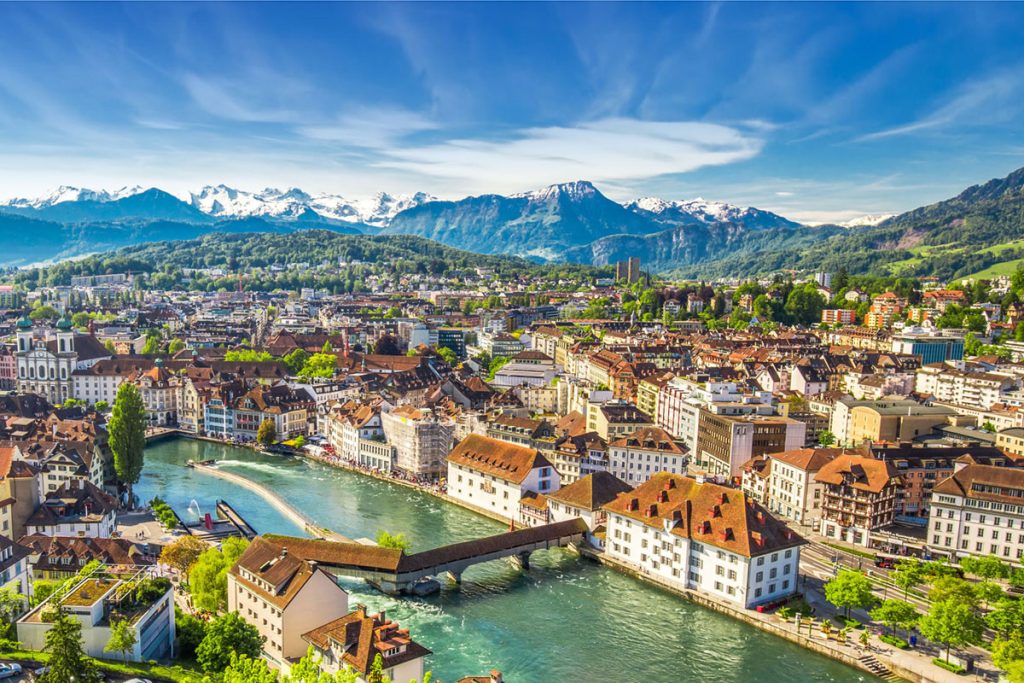A Comprehensive Guide to Renting a Home in Switzerland
Switzerland, famous for its world-class ski resorts, exquisite chocolates, and stunning natural beauty, consistently ranks as one of the best places to live in terms of quality of life. If you are considering moving to Switzerland—whether as a student, expatriate, or professional—understanding the intricacies of the housing market is essential. The process of renting a home in Switzerland can be quite different from other countries, with variations in rental prices from city to city and even neighborhood to neighborhood. This detailed guide provides all the information you need on renting a home in Switzerland, focusing on the process, requirements, and an overview of the major cities.
Introduction: Switzerland’s Housing Market

Renting is the norm in Switzerland, one of the countries with the lowest homeownership rates in Europe. As of 2018, only about 42% of Swiss residents owned their homes, compared to the European Union average of around 70%. High property prices make renting a more popular choice, particularly in urban centers like Zurich, Geneva, and Basel—cities where buying a home can be prohibitively expensive. Switzerland ranks third in Europe for high property costs, just behind the United Kingdom and Monaco.
From quaint apartments to spacious houses and even luxurious châteaux, Switzerland offers a variety of accommodation types. However, to rent a home, it is crucial to understand the documentation, regulations, and regional variations in rental costs. This guide will help you navigate the Swiss rental market with ease.
Overview of the Swiss Rental Process
The process of renting in Switzerland is generally straightforward but can be competitive. With a high demand for housing, especially in cities like Zurich, Geneva, and Basel, prospective tenants need to be well-prepared. Below, we’ll discuss the key steps, required documentation, and regional differences in rental prices.
General Requirements for Renting in Switzerland
- Residence Permit: Before renting a home in Switzerland, it is necessary to have a residence permit. For newcomers, this means applying for either a B or C type permit, depending on your circumstances.
- B Permit: Temporary residence permit, typically issued to expats and allows the holder to buy one home.
- C Permit: Permanent residence permit, giving the holder the same housing rights as Swiss citizens.
- Documents Needed: When applying for a rental property, you will need:
- Proof of Employment: A formal employment letter from your employer.
- Income Verification: Recent payslips to demonstrate your ability to pay rent.
- Residence Permit Information: Proof of your residency status.
- Contract Length and Deposit: Rental contracts are usually set for a 12-month period, with a requirement of a deposit—generally up to three months’ rent—as a security measure. The landlord has the right to increase the rent in accordance with legal guidelines during the contract period.
How to Find a Rental Property
In Switzerland, rental listings can be found through local real estate agents or popular online portals. Some of the top websites for apartment hunting include:
- Homegate
- ImmoScout24
- Newhome
- Immostreet
These platforms offer a wide variety of rental options and allow filtering by price, size, and location.
Rent Prices in Major Swiss Cities
Rental prices in Switzerland vary significantly between cities, with Zurich, Geneva, and Basel being the most expensive. Below is a breakdown of the average rental prices in these key cities and the factors contributing to these costs.
Zurich: Vibrant City Life with High Rental Costs
Zurich, Switzerland’s largest city, is a thriving hub for business, culture, and education. Home to renowned institutions like ETH Zurich and the University of Zurich, the city attracts students, professionals, and families alike. Zurich is divided into 12 districts, known as “Kreis,” each with its own unique characteristics and rental prices.
Rental Price Breakdown in Zurich:
| District (Kreis) | Number of Rooms & Size | Average Rent (CHF) |
|---|---|---|
| Kreis 11 | 1.5 rooms, 50 m² | 1,600 |
| Kreis 11 | 3.5 rooms, 84 m² | 2,958 |
| Kreis 2 | 3.5 rooms, 132 m² | 4,300 |
| Kreis 7 | 3.5 rooms, 121 m² | 3,590 |
| Kreis 2 | 2 rooms, 51 m² | 1,560 |
| Kreis 3 | 1 room, 17 m² | 900 |
| Kreis 10 | 1.5 rooms, 22 m² | 1,500 |
| Kreis 12 | 2 rooms, 51 m² | 1,570 |
The rental costs in Zurich vary by proximity to the city center, with Kreis 1 (Altstadt) being the most expensive due to its central location and historical charm. Expats and newcomers often favor Kreis 2 (Enge) and Kreis 7 (Fluntern) due to their residential feel and proximity to parks and international schools.
Basel: A Cultural Crossroads
Basel, Switzerland’s third-largest city, is situated on the border with France and Germany, making it an attractive choice for cross-border commuters. Basel is a major player in the pharmaceutical and chemical industries, with global companies like Novartis and Roche headquartered here.
Average Rental Prices in Basel:
| Neighborhood | Number of Rooms & Size | Average Rent (CHF) |
| Birmannsgasse | 3.5 rooms, 108 m² | 2,550 |
| Colmarerstrasse | 2.5 rooms, 57 m² | 1,430 |
| Schorenweg | 2 rooms, 48 m² | 1,205 |
| Ahornstrasse | 1 room, 22 m² | 630 |
| Kanonengasse | 3.5 rooms, 153 m² | 5,950 |
| Hirzbodenweg | 4.5 rooms, 157 m² | 4,880 |
| Spalenberg | 4 rooms, 228 m² | 3,085 |
| Rosentalstr | 3.5 rooms, 97 m² | 2,835 |
Basel’s neighborhoods are known for their distinct character. Areas like Grossbasel, located on the south bank of the Rhine River, are preferred for their proximity to cultural sites, while Kleinbasel is popular with younger renters seeking a lively atmosphere.
Geneva: International Hub with Luxurious Rentals
Geneva is an international city known for its diplomatic importance. Hosting numerous international organizations like the United Nations and the World Health Organization, Geneva attracts professionals from all over the world. This high demand contributes to the city’s high rental prices.
Rental Price Overview in Geneva:
| Neighborhood | Number of Rooms & Size | Average Rent (CHF) |
| Avenue de Miremont | 1.5 rooms, 35 m² | 1,900 |
| Rue Pestalozzi | 3 rooms, 55 m² | 2,015 |
| Boulevard de Saint-Georges | 5 rooms, 74 m² | 3,108 |
| Rue des Eaux-Vives | 5 rooms, 115 m² | 4,750 |
| Rue des Pâquis | 1.5 rooms, 25 m² | 1,170 |
| Boulevard de la Cluse | 1 room, 24 m² | 650 |
| Rue du Grand-Pré | 2 rooms, 31 m² | 1,035 |
| 1209 Geneve | 9 rooms, 255 m² | 9,800 |
Renting in Geneva can be a challenge due to limited supply and high demand. Popular neighborhoods include Eaux-Vives, known for its picturesque lakeside views, and Paquis, which is a bustling area close to international institutions.
Tips for Renting in Switzerland
- Be Prepared for Competition: The rental market in major Swiss cities is highly competitive. It’s advisable to gather all necessary documents in advance and be ready to act quickly when you find a suitable property.
- Consider the Location: Rent prices are heavily influenced by location. Living in the city center will come with a higher price tag, but may save on commuting costs and provide greater access to amenities.
- Budget for Additional Costs: In addition to rent, consider the cost of utilities, maintenance fees, and any building service charges. Most rental agreements in Switzerland do not include utilities, which are billed separately.
Conclusion and Recommendations
Switzerland is renowned for its high quality of life, excellent public services, and stunning natural landscapes. While rental prices are undoubtedly high, particularly in cities like Zurich, Geneva, and Basel, the standard of living and amenities often justify the cost. To make the rental process smoother, start by ensuring you have the necessary documentation, familiarize yourself with regional price differences, and use reputable real estate platforms.
If you are new to Switzerland, consider enlisting the help of a local real estate agent to navigate the competitive rental market. This guide should serve as a foundation for understanding the key aspects of renting a home in Switzerland, but each city and neighborhood offers unique characteristics and challenges.

